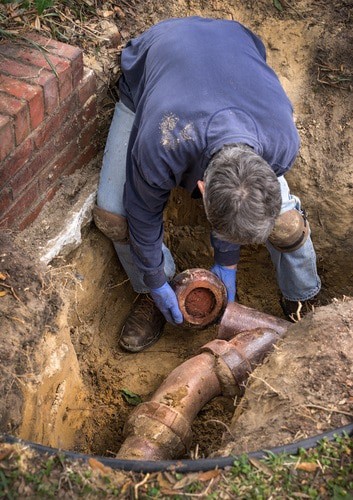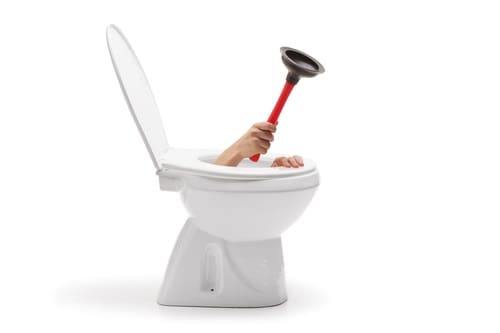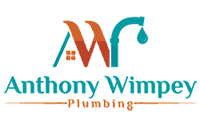Do you need sewer line repair in Covington?
Let us guess – sewer line repair in Covington isn’t on the top of your 2019 to-do list? No one wants to think or talk about sewer line repair, except for the possible exception of plumbers. But imagine life without your sewer line. It would be like going back to medieval times. The pipes that carry your household waste from your kitchen, bathrooms and other disposal sinks to the city system are vital to our society and to our cities and towns. As long as everything is working fine, you probably don’t ever give them a second thought. When things go wrong, however, that’s when the situation becomes a crisis.
So, what causes sewer lines to breakdown, rupture, or crack? What are the reasons they need repair, and how are they repaired? There are so many possibilities—some common, some totally unexpected. No matter the cause, if there’s an issue, it needs fixing as quickly as possible.
Let’s take a look at some of the reasons for sewer line issues, and what you should do about them:
Age of the Sewer Line
Like anything else, sewage lines don’t last forever. If you live in an older home, you could face line issues simply because of the age and breakdown of the pipe materials. The pipes can corrode over time and cause problems including broken or collapsed pipes. Older pipes are prone to developing mineral deposits that can build up and cause clogs or cause pipe damage. The joints or seams of older lines, where sections of pipe meet, can start to leak leading to water and sewage leaks. Any of these issues can cause problems that need attention. You can repair old sewer lines but at some point, they will need replacing.

Roots and Other Growth
One of the most common causes of sewer line damage is roots that grow into the pipes. As trees, bushes, and other plants grow, their roots spread out in search of water. One of the best places to find water are sewer lines. The roots will work their way into the seams of the pipes to reach the water, causing leaks, clogs, and broken pipes. If caught early these issues are easily repaired. If the root intrusion goes unnoticed, it can completely destroy the line, and you’ll need to replace the damaged portions.
Natural Disasters
The good news is we don’t have to worry much about earthquakes in Georgia. The bad news is we might face other natural disasters such as hurricanes and flooding. When there is a flood, it can impact everything in the area, including sewer lines. If there’s flooding in your neighborhood and you notice issues with your toilets and sinks afterward, it could mean damage to the sewer lines. Now, if you’re lucky, a plumber can repair them. If the damage is far-reaching, it could mean a replacement is the only option.
Sinking and Settling
All dirt and earth shift and settle over time. This is true of the soil under the foundation under older homes that shifts and settles, it’s true of new construction homes, and it’s true of pipes and water lines that can shift as the ground beneath them moves. When the ground under pipes shifts, it can cause sinking in areas of the pipes, creating what’s called a negative slope.
Because water runs downhill, sewer lines must angle down toward where they meet the city lines. When they sink somewhere in between your home and the street, the water and waste can’t flow down, and you’ll end up with clogged lines. It can mean that water and waste pools in the areas of the lines that are now lower than the rest. This issue can mean backups and a horrible sewage smell in and around your house. Filling in the ground beneath the pipes can raise them back up for effective flow.

Pipe Corrosion
One of the most significant factors in any pipe is corrosion. Whether it’s the water lines in your home, your water heater, or your sewer lines, corrosion is a factor. It’s caused by anything from age and wear and tear to corrosion from liquids that pass through the pipes. Pipes made from iron and steel are the most vulnerable to rust and corrosion. With sewer lines the most common type of corrosion is erosion. Corrosive liquid that flows through them erodes the lining and can lead to leaks. The most common corrosive liquids plumbers find to affect pipes are cleaning solutions, including liquid drain cleaners.
Damage from External Sources
Some things you can control, such as what goes down your pipes. Unless you have kids, of course, then you never know. But external damage is not unheard of when it comes to your sewer lines. Digging holes to plant trees might be the number one reason for external damage. Excavation for utility line installation and repair can also cause damage that leads to the need for repair or replacement.
Improper Installation
A sewer line installed properly by a professional with no negative slopes should never lead to line problems. Occasionally, unrelated to installation, a low spot can develop that causes the line to sink in one or more areas. Improper installation without the appropriate ground preparation and foundation can lead to back-pitch issues, cracked pipes, collapse, or sewage backups. In these cases, you could need a total reinstallation of the pipes.

Blockages and Restricted Water Flow
Blockages can occur when something gets put down the drain or the toilet that shouldn’t go down the drain or the toilet. Your kitchen sink can be the cause of a line block. If you put grease or oil, starchy foods like potatoes and pasta, fruit peels and rinds, and fibrous foods celery and corn husks. If they don’t end up clogging your kitchen sink, they can certainly cause a blockage or clog down the line in your pipes and your sewer line.
Your kitchen sink is one place the issues can start, but let’s be honest, blockages are mostly from things that go down the toilet that have no business going there. There’s a common misconception about what is acceptable to flush. The rule of thumb is you should only flush items that will disintegrate. That does not include feminine products such as tampons, baby wipes, “flushable” wipes, hair, cotton balls, makeup removal pads, kitty litter, paper towels, dental floss, and (if you have kids this is important) toys. All of these things can not only clog your toilet, but they can cause a blockage or clog in your sewer line. When this happens, it’s not just a simple solution like plunging your toilet. You will need to call a professional plumber to clear the lines.
If you’re like most people, you tend to take it for granted that what you put down the sink and flush down the toilet will get whisked away to wherever it gets whisked away to. You never give your sewer lines a second thought. Until something goes wrong. The idea of a broken or damaged sewer line can bring on nightmarish feelings. Oh, the smell! No one wants to face that, especially in your home or in your front yard.
There are a lot of things we can do to help prevent sewage line issues such as blockages and clogs. In other cases, the damage is beyond our control. No matter the cause, when your lines need repair, they can’t wait. You need to hire a reliable plumber to take care of the problem as quickly as possible.
Sewer line issues don’t always appear suddenly. Damage and clogs can happen over time. If you notice sinks that are draining more slowly than usual, toilets that don’t flush properly, or gunk or sludge coming up through bathtub or shower drains, those are indicators you could have a sewer line issue. These pipes can contain not only sewage but often household chemicals that can be hazardous if they begin to leak.
If you have an issue, don’t wait to take action. Reach out to the pros at Anthony Wimpey Plumbing. Contact us today for any sewer line repair in Covington.

